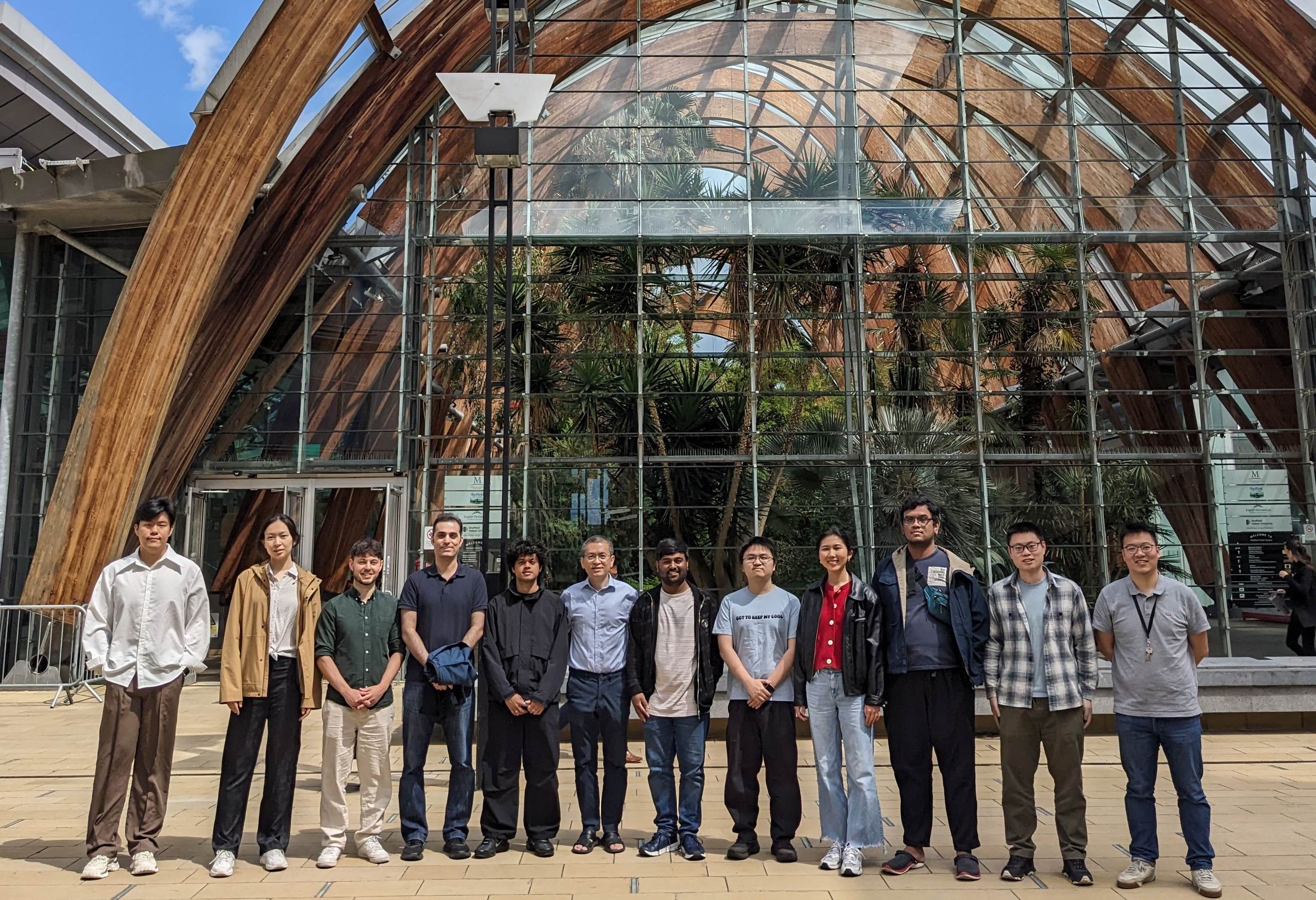Haiping Lu
Director of the UK Open Multimodal AI Network, Professor of Machine Learning, and Head of AI Research Engineering
University of Sheffield
🏛️ I am a Professor of Machine Learning at the School of Computer Science and the Head of AI Research Engineering at the Centre for Machine Intelligence, University of Sheffield. I am also the Director of the UK Open Multimodal AI Network (UKOMAIN), funded by EPSRC, building on the Meta-learning for Multimodal Data interest group at the Alan Turing Institute.
Follow our UKOMAIN LinkedIn page for updates and opportunities, or subscribe to the Multimodal AI Community mailing list.
🖥️ My research focuses on deployment-centric multimodal AI for healthcare and scientific discovery:
- Multimodal AI: Foundation models, generative AI, domain adaptation, and transfer learning.
- Healthcare: Brain and cardiac imaging, and cancer diagnosis and treatment.
- Scientific discovery: Protein engineering, and drug and materials discovery.
I lead the development of the open-source software library PyKale, part of the PyTorch ecosystem, enabling accessible machine learning for interdisciplinary research.
🧩 Editorial Service
- Editorial Board Member, Science and AI (Springer Nature), 2026–present
- Associate Editor, IEEE Transactions on Neural Networks and Learning Systems, 2022–2025
- Associate Editor, IEEE Transactions on Cognitive and Developmental Systems, 2022–2025
🏅 Selected Awards
- Turing Network Development Award
- Amazon Research Award
- NIHR AI in Health and Care Award
- Wellcome Trust Innovator Awards: Digital Technologies
📩 PhD enquiries: Please email me ONE PDF including your CV, a statement of motivation and source of funding, 1–3 representative papers, and transcripts before applying. Please also check the English language requirements.
📚 Research & Publications
Adventure and voyage of discovery
Our research advances multimodal AI technologies for healthcare and scientific discovery, resulting in high-impact publications and open-source software. Explore selected projects and their associated papers below, or view the full list of projects for more details.
📄 Publication Profiles: Google Scholar | ResearcherID | Scopus Author ID | Semantic Scholar
🔍 Explore publications up to Feb 2022 >. Publications after Feb 2022 are not updated here due to time constraints. For more recent publications, view the full list of publications in my CV (page 2 onward) or visit Google Scholar.
.js-id-Selected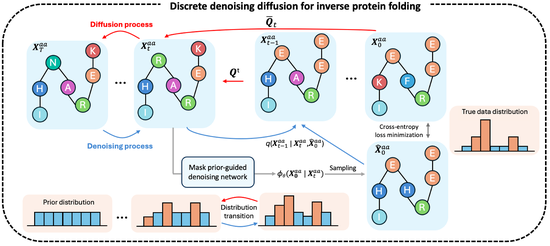
Inverse protein folding via denoising diffusion
Design proteins using mask prior-guided denoising diffusion for inverse protein folding
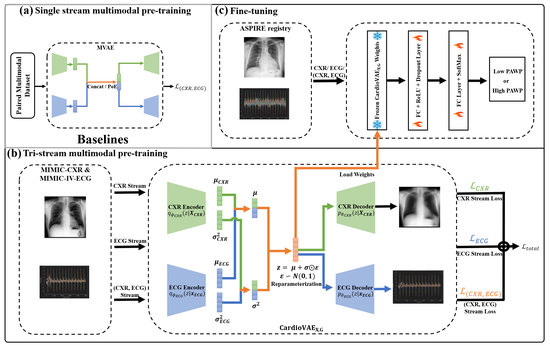
Multimodal VAE for low-cost cardiac assessment
Develop a cost-effective cardiac instability detection tool using multimodal variational autoencoder
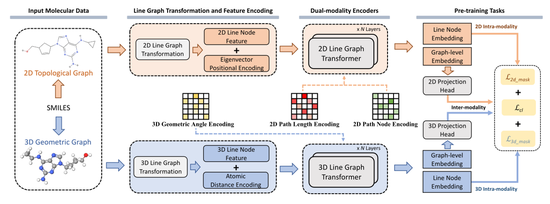
Molecular property prediction via line graph transformer
Predict molecular properties with geometry-aware line graph transformer pre-training
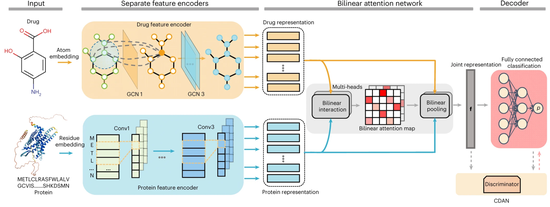
Drug–target interaction prediction via bilinear attention network
Advance drug discovery with interpretable bilinear attention network and domain adaptation
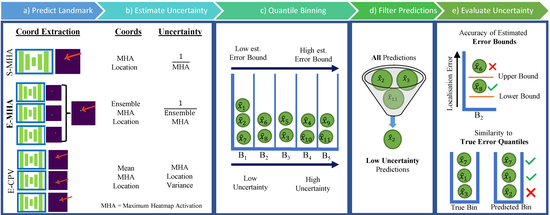
Uncertainty estimation for landmark localisation
Quantify the uncertainty in automatic anatomical landmark localisation
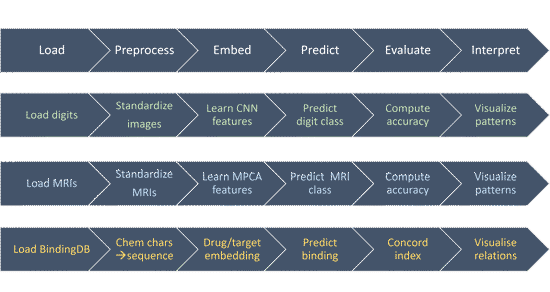
PyKale: open-source multimodal learning software library
Enable accessible machine learning from multiple data sources for interdisciplinary research
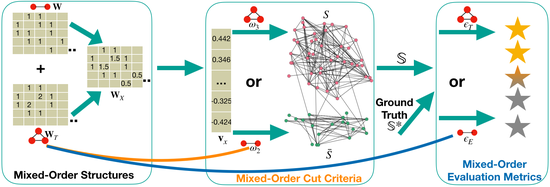
Mixed-order spectral clustering for networks
Model both second-order and third-order structures simultaneously for complex networks
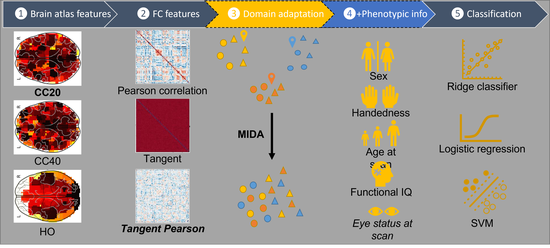
Multisite brain fMRI classification
Classify autism across multiple sites via site-dependence minimisation & second-order functional connectivity

Learnable GCN aggregator
Construct a feature-importance-aware and robust aggregator for graph convolutional networks
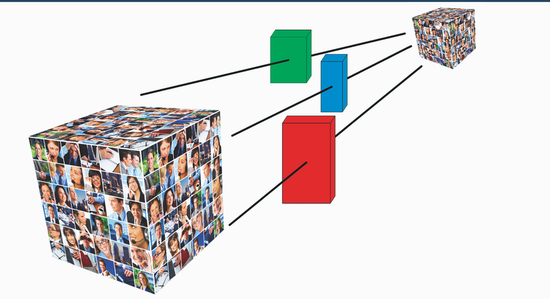
Learn via tensor modelling
Learn low-dimensional representations of high-dimensional data from their natural tensors
🎓 Teaching Highlights
Learn to teach, teach to learn
I developed and lead a course on An Introduction to Transparent Machine Learning, part of the Alan Turing Institute’s online learning courses in responsible AI.
At the University of Sheffield, I taught two modules below, with teaching materials available on GitHub via links below and video lectures on YouTube. For a full teaching history, see my CV.
- Spring 2017-2023, 2025: COM6012 Scalable Machine Learning
- Fall 2018-2021: COM4509/6509 Machine Learning and Adaptive Intelligence
